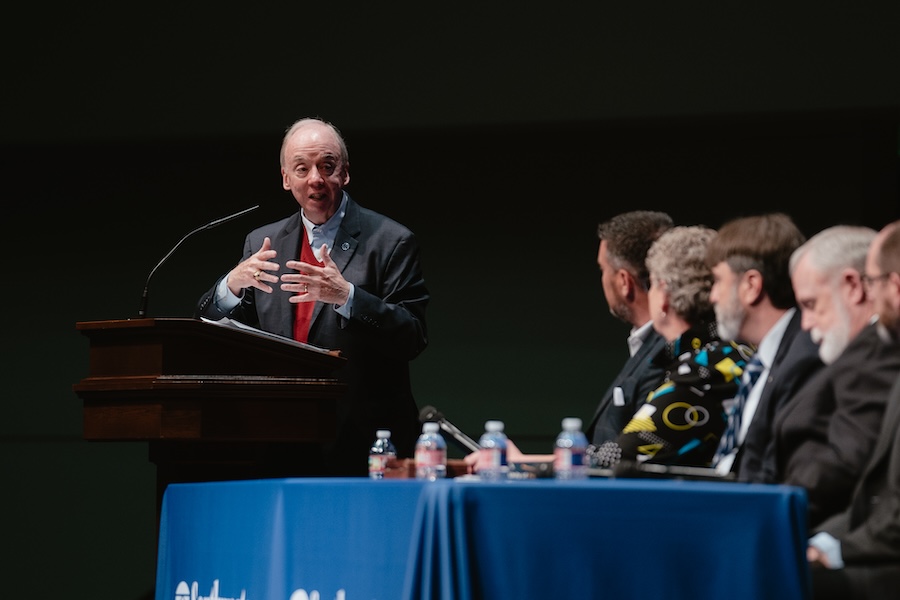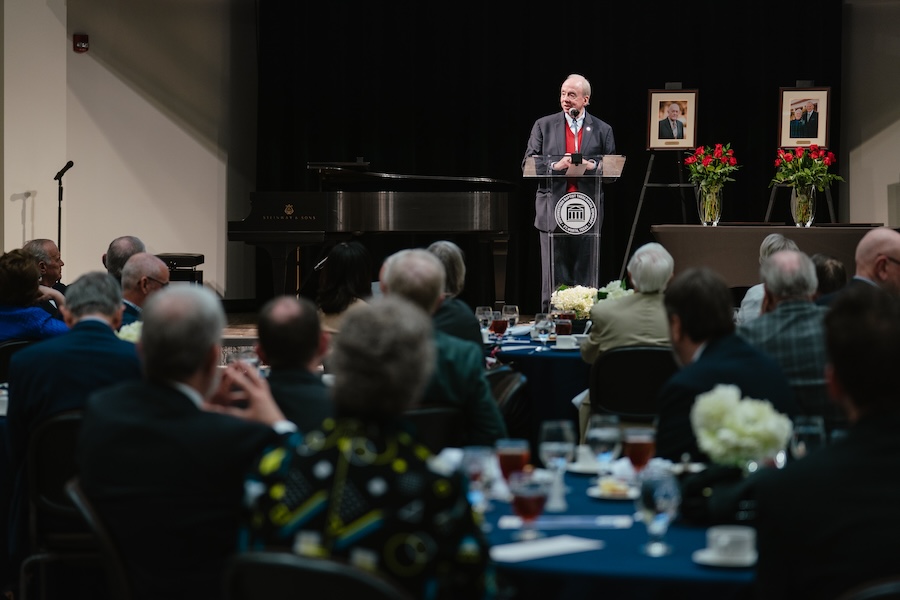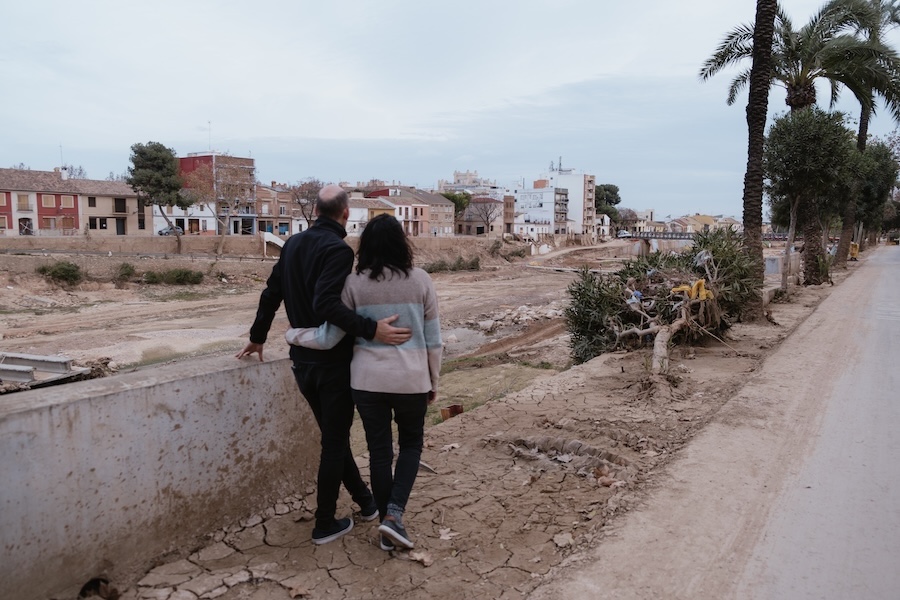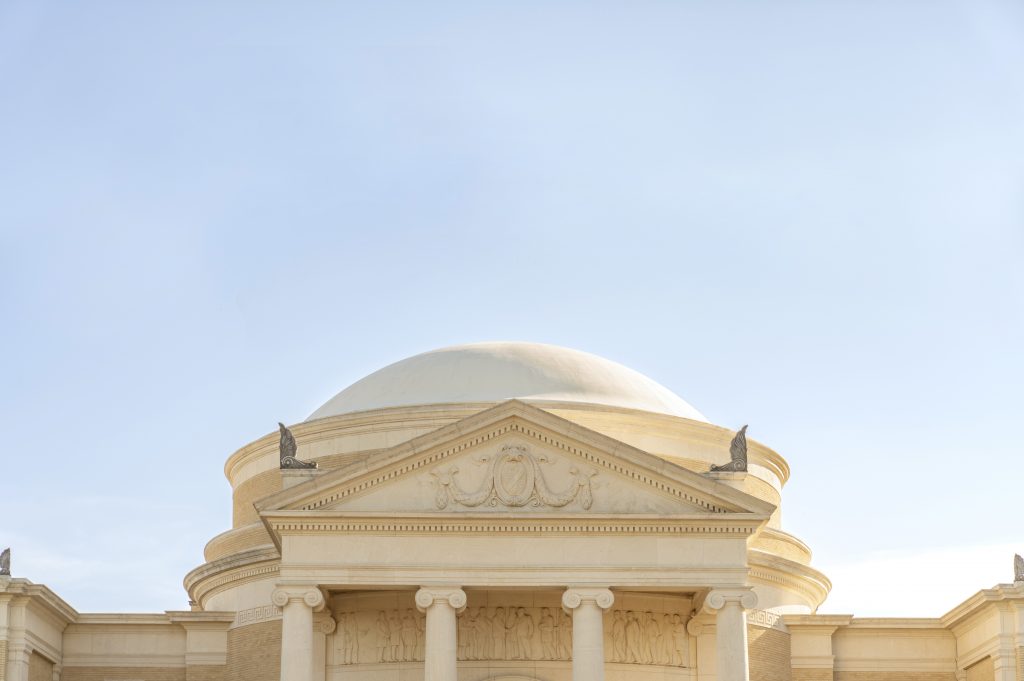Carl Trueman lectures on how churches can guard truth in a changing culture
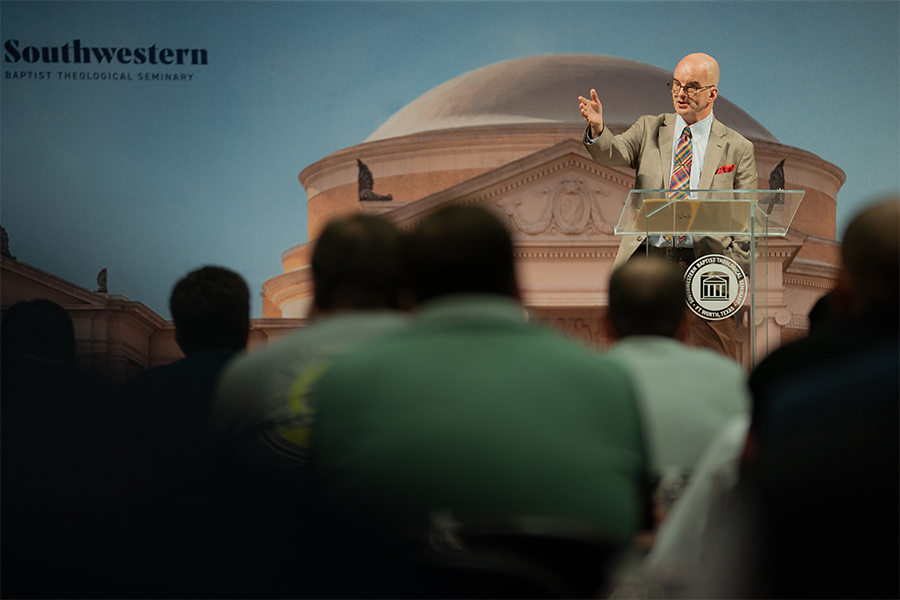
For the fall 2024 Day-Higginbotham Lectures held Oct. 17-18, Southwestern Baptist Theological Seminary welcomed historical theologian, church historian, and former pastor Carl Trueman to present two lectures with the topics of “Blessed are the Transgressors” and “The Culture of Confessions.”
The Day-Higginbotham Lectures are “a fixture and feature at Southwestern Seminary since 1965,” President David S. Dockery said in introducing the lecture series Thursday evening. “And in God’s kind providence, some of the finest Christian thinkers, theologians, and scholars across North America and in Europe have come to deliver these lectures. And we are especially glad to have our lecturer for this evening, who falls into that highly distinguished category.”
Trueman, who serves as professor of religion and biblical studies at Grove City College in Pennsylvania, visited the Southwestern campus twice before to speak and said he is glad to be back again to address a topic concerning the drastic changes in the secular world that has caught his attention in recent years.
“One of the things that has gripped my imagination over the last couple of years is not so much why our world is becoming so secular in the typical sense of the word, but why it is becoming so exaltedly so,” Trueman began his Oct. 17 lecture, “Blessed are the Transgressors.”
Trueman walked through the centuries that saw humanity transition from the agrarian lifestyle that was restricted to the annual schedule of growing crops and the limitations of distance, to the arrival of technology such as the printing press that contributed to the spread of ideas as well as the movement toward life in the cities. People went from having one religion, and adherence thereof as the only option, to being able to choose what they believe, just as they began to choose where to live and what profession to pursue.
Trueman said with this new ability to make choices, the question of what it means to be human began to emerge as the first person became more common in literature, as did the examination of individualism and consideration of what human nature is. A question today’s secular world still struggles to answer, Trueman pointed out.
Moving through the remaining decades into the contemporary world, Trueman said today it has become acceptable to transgress what had once been assumed to be human nature and socially permitted, not just breaking those social norms but boasting in that transgression. By breaking free of what is expected of them, Trueman said many believe they show their authenticity and individuality.
Because of this, religion and systems of morality are now viewed as restrictions to be done away with in order to be one’s true self, leading to not just a transgression but the desecration of what was once considered holy.
“Why is it that we now live in a world where boasting and exalting in what would typically have been considered wrongdoing has become a virtue?” Trueman asked. “Why is it that transgression, if you like, is now something in which we are to glory?”
Trueman pointed out different social topics such as abortion, which went from being proposed as “safe, legal, and rare,” to now being a right that is demanded and boasted in. Other issues he listed included the profane language which has become common in speech and entertainment, the sexual revolution, and recent discussions on gender.
In reaction to the constantly shifting issues of the culture and even developing technology, Trueman said in his Oct. 18 lecture that it is important for believers and churches to stay grounded in the Scriptures and creeds and confessions that focus on the unchanging truths of God.
Trueman said culture and even evangelicals often push back against the idea of having creeds and confessions because they might supplant Scripture as the ultimate authority or because it opposes the individualistic viewpoint many hold on to, instead focusing on the transcendence of God.
“When I talk about creed, I’m typically thinking about the Apostles’ Creed, the Nicene Creed, early church creeds that have a fairly narrow focus in terms of what they affirm,” Trueman said. “They affirm the very core of the Christian faith, the denial of which is impossible to maintain and also claim to be a Christian.”
Trueman explained that confessions are more detailed documents that emerged after the Protestant Reformation and those ancient creeds were expounded upon to clarify their specific beliefs with statements of faith.
Trueman noted that while visiting the campus, he saw that one of Southwestern’s core values is “Confessionally Guided.”
“What that means, of course, is you have a statement of faith somewhere that you consider a summarizing, central, key message of Scripture that guides and shapes everything that goes on on campus here,” Trueman explained. “… It is not something that stands above Scripture. It is something that summarizes Scripture, and is, in theory at least, correctable in light of Scripture.”
Confessions, Trueman further noted, protect those core doctrines a church holds firmly to in a time when some areas might have 100 churches in a 10-mile radius and individuals must choose which to attend. Because of this, many churches have transformed from being an “authoritative institution” to a “consumer commodity,” from “places of formation” to “platforms of performance,” Trueman said. Instead of making sacrifices to uplift the truths of the Gospel promoted by the church, members instead look for how the church appeals to their current needs and feelings.
For church members and leaders wanting to move their churches in a confessional direction, Trueman advised careful consideration of the songs sung in worship—focusing on the truth of the Gospel and not just present needs, the preaching, and also the examples lived out by the pastors and elders in the church, since the congregation will often mirror them in how they speak and act.
“If you want to create a culture in church where confessions are honored, you can’t do it by simply telling people, ‘We got to be confessional,’” Trueman said. “We’ve got to work on transforming the culture as a whole. … In order to bring our churches to the point where these things will become part of culture, we need to transform the cultures of our churches.”
Trueman said he believes the upcoming years will be critical for churches because of the challenges they are just starting to face, and having statements of faith that clearly express the church’s confessions of belief and not just reactions to the secular culture will prove useful.
Trueman ended his Oct. 18 lecture with a time of Q&A, when Land Center Director Daniel Darling directed submitted questions concerning topics such as the pushback seen even in non-confessional Christians against progressive movements and how Christian orthodoxy offers a countercultural version of identity and purpose.
During his visit to Southwestern, Trueman also met with doctoral students to answer questions and share further insight with them concerning how they can help churches respond to the constantly changing culture that no longer holds to the same values they do.
“The church needs good intellectual leadership, because the church needs to catechize her own people before she can address the wider culture,” Trueman said to those students, adding the understanding of who humanity is before God is crucial.
“A lot of my colleagues at Grove [City College] always talk about transforming culture and the church transforming the culture,” he said “I’d like to put it to my students that the church doesn’t transform the culture. The church is a culture, and we need to think first and foremost about the rising generation within the church. And that means we need good thinkers working in all different areas of church life.”
Joshua Williams, director of research doctoral studies, expressed his gratitude for this opportunity for students to meet with Trueman directly.
“The opportunity to meet with Dr. Trueman was invaluable,” Williams said. “He not only shared insights into the current cultural landscape, but also provided suggestions for how our doctoral students can prepare themselves to serve the churches as future Christian intellectual leaders. I look forward to seeing how the discussion shapes what research students conduct and how that research applies to ministry contexts.”
Trueman previously served as the Paul Woolley Professor of Church History at Westminster Theological Seminary and on the faculty at the University of Nottingham and University of Aberdeen. He holds degrees from Cambridge University, and his PhD is from Aberdeen. His books include The Rise and Triumph of the Modern Self and Strange New World: How Thinkers and Activists Redefined Identity and Sparked the Sexual Revolution, among others.
Trueman’s lectures in their entirety will be available on Southwestern’s Equip The Called website.
